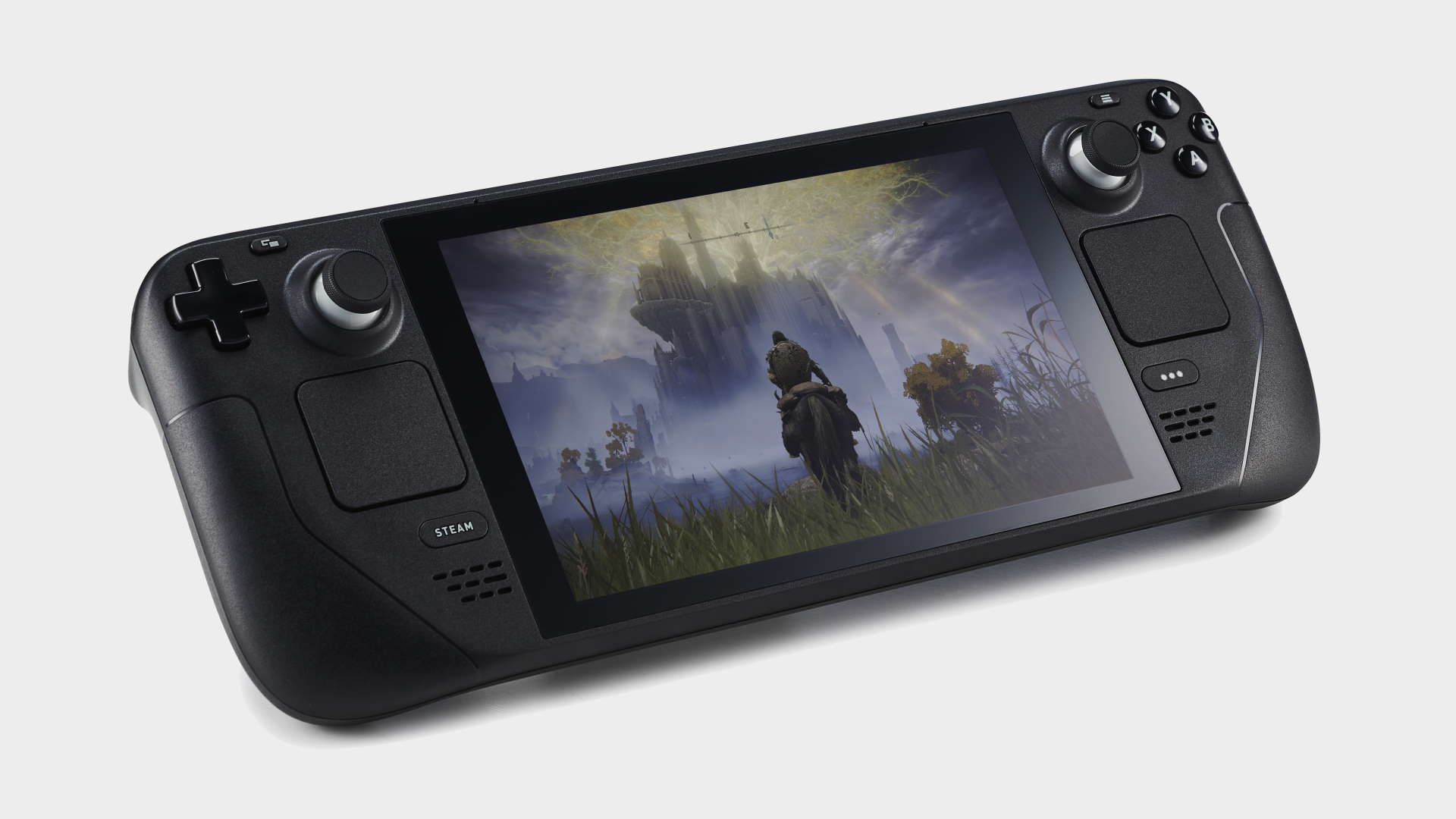Valve says Steam Deck's SSD change impacts performance only in 'extremely uncommon cases'
Steam Deck designer Lawrence Yang has explained the rationale behind a recent change to the handheld gaming PC's storage options, saying that the team at Valve has "determined that there is no impact to performance between the two models" of SSD now being used.
HardwareLuxx brought to light that the Steam Deck's 256GB and 512GB versions can now ship with either a two-lane or four-lane PCIe SSD, a spec change made at the end of May. We reached out to Yang to ask what the difference will mean for the end user. According to Valve's design team, there is no difference between the two drives except in "extremely uncommon cases."
The original Steam Deck spec states a PCIe Gen3 x4 SSD for both the 256GB and 512GB versions of the device, but those SKUs are now listed with either PCIe Gen 3 x4 or PCIe Gen 3 x2 drives. It states that some models will ship with one kind of drive and some with the theoretically slower SSD.
Valve's rationale for the change is easy to understand; it's largely about securing the supply chain and increasing manufacturing capabilities to ensure that large pre-order list gets run through as quickly as possible.
Valve recently announced it would be "shipping more than double the number of Steam Decks every week," and giving itself another SSD option is part of the reason it can manage such a feat.
"Many Steam Deck components come from multiple suppliers for improved redundancy and production capacity," Yang tells me. "One of our SSD suppliers provides PCIe Gen 3 x4 NVMe SSDs, while another provides a x2 (2 lane) SSD.
"Our team has tested both components extensively, and determined that there is no impact to performance between the two models."

The current Deck specs state that, in Valve's testing, it did not see a performance impact on gaming performance, but we were keen to know whether there might be an impact on more general system performance.
Given that an x2 SSD has half the potential bandwidth of an x4 SSD—and those drives often have lower peak sequential read/write speeds, too—it's reasonable to expect there would be some sort of performance delta between them. Those numbers are only theoretical, though, because real-world system performance can be bottlenecked by many different factors in a full system such as the Steam Deck.
Some of the actual loading times of games on the Deck, and its SteamOS operating system, could be pretty sluggish at times even with the x4 SSD in our review sample.
Yang says there are some edge cases where the switch in SSD can impact file transfer speeds, but on the whole system performance remains the same whichever drive is installed.
"SSD performance is currently gated by factors not related to PCIe bandwidth," says Yang. "In extremely uncommon cases, differences in read/write speed caps may minimally impact file transfer speeds, but OS performance, loading times, game performance, and game responsiveness are identical between the x2 and x4 drives."

Steam Deck review: Our verdict on Valve's handheld PC.
Steam Deck availability: How to get one.
Steam Deck battery life: What's the real battery life of the new device?
How loud is the Steam Deck? And will it pass the Significant Other test?
Steam Deck - The emulation dream machine: Using Valve's handheld hardware as the ultimate emulator.
That sounds fairly reassuring, and you've got to hope that Valve would have done some pretty extensive testing to make sure the end user won't notice the difference. Though without being able to carry out our own side-by-side testing of the different drives with two Steam Decks side-by-side, we are going to have to take Valve's word for it for now.
I'd say it makes sense that other things are already bottlenecking the performance of the theoretically faster x4 drive given my experiences with the Steam Deck, so personally I'm inclined to trust Valve's analysis here.
Still, I wouldn't be happy to find I'd lost out on the silicon lottery and got a new Steam Deck with the slower SSD, whether I'd ever notice a difference in actual usage or not. If you're the same as me: maybe just don't look. 🤷♀️
from PCGamer latest https://ift.tt/UjxdNWY
via IFTTT
Comments
Post a Comment